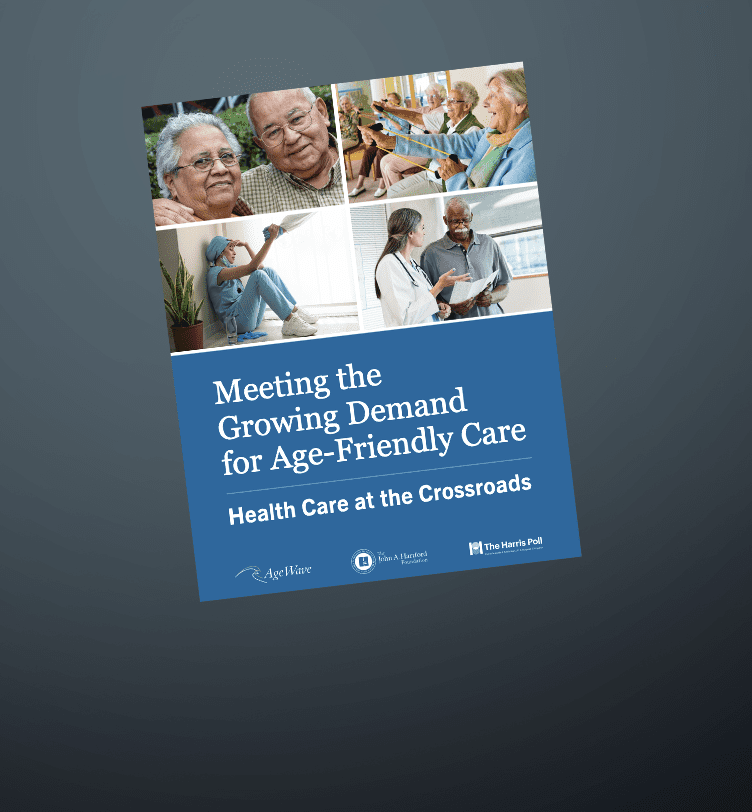Search Posts
Recent Posts
- We Cook! Mill’s Tavern’s Heirloom Tomato Caprese with Basil Gel and Balsamic Drizzle June 26, 2025
- CODAC a one-stop center for whole person care – G. Wayne Miller, Ocean State Stories June 26, 2025
- To Do in RI: Collector-Con Providence 2025 – Meet Tony Jones! June 26, 2025
- Rhode Island Weather Forecast for June 26, 2025 – Jack Donnelly June 26, 2025
- RI Veterans: Did you know? 26.06.25 (Golf – Early Retirement – Events – Benefits) – John A. Cianci June 26, 2025
Categories
Subscribe!
Thanks for subscribing! Please check your email for further instructions.

National survey says care for older adults needs urgent rethinking – Herb Weiss
By Herb Weiss, contributing writer on aging issues
With President Trump’s administration beginning and a new Congress poised to rethink, among other issues, Social Security, Medicare and federal aging programs and services, it might be prudent for the president and lawmakers to take a quick glance at the findings of a recently released national survey, “Meeting the Growing Demand for Age-Friendly Care: Health Care at the Crossroads.”
This 52-page national report, was released on Sept. 17, 2024 by Emeryville, California-based Age Wave, a think tank that studies the social, financial, healthcare, and business impacts of aging and The John A. Hartford Foundation (JAHF), a New York based-foundation dedicated to improving care of older adults. The survey was conducted by The Harris Poll, a marking and analytic company tracking public opinion in existence for over sixty years ago.
According to the U.S. Census Bureau, America’s population of adults over 65 is expected to skyrocket, from 56.1 million in 2020 to 82.1 million by 2050. The enormous increase in the number of older adults is forcing states, Congress, and the private sector to rethink their approaches to health care, social services, housing and more, to help older adults live well as they age.
As millions of Baby Boomers (born 1946 to 1964) age, living longer than previous generations and seeking ways to maintain wellness and independence to age in place, this nationwide survey shows deep dissatisfaction among older Americans aged 65 and over with health care and services they receive that do not meet their specific needs and preferences.
Finding Policy Solutions to Maximize “Golden Years”
The national survey reported that four in five older adults (82%) say the U.S. health care system is not prepared for the growing and changing needs of America’s aging population. Just one in 10 (11%) give the health care system an ‘A’ grade. Instead of the status quo, older adults say they want solutions that will maximize their golden years, like interventions that make care more affordable, innovations to reduce or prevent cognitive decline and health care providers who understand what matters most to them when assessing care options.
“Older adults are stuck in a health care system that is not responsive to their goals and preferences. Boomers want health care that maximizes their health and ability to function, and they want their providers to listen to them,” said Terry Fulmer, JAHF’s president, in a Sept. 17 statement announcing the release of the report. “It is not too late to pivot to age-friendly care, which prioritizes the needs and desires of older adults in their care plan. There are many innovative approaches to help older adults live every year to its fullest, not just increase the number of years they live,” she says.
International longevity and aging expert, Ken Dychtwald, founder and CEO of Age Wave, added: “The United States is on the brink of an age wave of unprecedented proportions, and American health care requires a radical and immediate rethink to match our health spans, or being able to live every year to its fullest, to our lifespans.”
Dychtward urged policy and business leaders to prepare for older adults making up a large and growing percentage of the U.S. population. “Everyone knows this day has been coming, but our survey shows that older adults do not like the choices or care currently offered to them. And the fact that although we spend more per capita on health care than any country in the world yet have worse lifespans and health spans is cause for alarm,” he said.
The age 65 and over survey respondents called for America’s health care system to offer “age-friendly care.” Most older adults (94%) say it is more important to maintain quality of life than it is to live as long as possible.
Only three in five older adults with a health care provider (58%) report that their providers currently ask about what matters to them. Though older adults fear Alzheimer’s and dementia more than any other health condition, for example, less than half (40%) say their health care providers routinely evaluate their cognitive health and brain functioning. Similarly, less than half of older adults (45%) say their health care providers evaluate their mental health, and although the ability to walk freely without pain is top of mind for older adults, just 55% say their medical care providers evaluate their mobility and physical fitness.
The national survey findings indicated that the older respondents say that there are not enough qualified care providers. Nearly all older adults (94%) say that health care providers should be trained on the unique health issues of people 65 or older, but only 10% of medical schools require a rotation in geriatric care, compared to 96% that require a rotation in pediatric care.
Between 2000 and 2022, the U.S. population of adults aged 65 and older rose 60%, but the number of geriatricians dropped by a whopping 28%. says the report.
Not surprisingly, the survey findings indicate that health care costs are viewed as “unaffordable” and of a bigger concern to older adults than living expenses, inflation, tax increases and an economic downturn or recession. For instance, just 16% give an ‘A’ grade to satisfaction with their out-of-pocket costs. Older adults are especially concerned with the cost of long-term care, stressing that one of their greatest concerns is not being able to afford future health and long-term care needs (68%), and that the government should prioritize having Medicare cover long-term care (80%).
Differing Views of the Quality of Nursing Home Care
An estimated 36 million Americans have a family member or friend living in a nursing home or memory care facility today, according to the survey. Just 37% of those adults ages 18+ say their family member or friend living in a nursing home or memory care facility receives high-quality care. Only half (50%) say these facilities are the safest place for them.
There must be more coordination between primary care providers and other health care providers. While 52% of Medicare beneficiaries see more than three physicians per year, half of older adults from the survey say their primary care provider does not coordinate their treatment with their other health care providers. The report notes that this may be attributed to the increasing shortage of primary care providers, which makes it less likely for people to have a usual source of primary care or long-term relationship with a primary care provider.
As noted in Primary Care in Rhode Island, in 2024, from 200,000 to 400,000 Rhode Islanders lack access to a primary care provider, resulting in a shortage of 133 to 266 primary care physicians to treat them.
Finally, more than half of older adults (56%) say it is challenging and very stressful to navigate the current health care system, while nearly two in three (62%) say health insurance plans provide too many confusing choices. Research has shown that more than half (55%) mistakenly believe Medicare will cover a long-term stay in a nursing home, the report added.
As the new Congress begins its debate on aging policy, regardless of political party, the national survey reports that their older constituents want public policies enacted that support quality care. The survey findings indicate that adding long-term care to what Medicare covers is supported by most Republicans (76%), Democrats (84%) and independents or people with other political affiliations (79%). Additionally, there is bipartisan support for improving quality at U.S. nursing homes also earns bipartisan support (Republicans 62% support, Democrats 68% support, independents or people with other political affiliations 65% support).
“Better federal and state policies can encourage the development of age-friendly health systems, that focus on improving patients’ well-being and quality of life,” predicts JAHF’s Fulmer. “Policies could include new options for affording long-term care insurance and developing a federal strategy to ensure disadvantaged populations are prioritized in a national strategy for age-friendly care,” she says.
Report Offers 5 Key Suggestions to Improve Care to older Americans
After reviewing all survey findings, JAHF identified five key recommendations to improve health care provided to older adults and to promote healthier, happier aging.
JAHF calls for promoting age-friendly care that can assist the nation’s older adults maintain their health, ability to function, thus maintaining their independence in the community. Pursuing scientific breakthroughs could bring the end to diseases like Alzheimer’s adds JAHF, calling for social isolation must be addressed.
Assist family caregivers with skill-building tools, policies that allow flexibility in taking paid leave and ensuring care providers coordinate among multiple providers the health care system easier to navigate.
Finally, JAHF calls for the creation of a ‘national master plan for aging’ that will be focused on meeting the needs of older adults. This plan would identify and address barriers that contribute to inequities, also creating a strategic plan that would provide a roadmap to reform the financing of long-term care, enhance the quality of nursing home care and to create systems to assist people to age in place at home rather than being admitted to acute and congregate settings.
“We are at a unique crossroads. However, changing America’s health care system to meet older adults’ expectations is possible, practical and could lead to greater health at a far lower cost—and can benefit the government, private enterprise and consumers,” said Dychtwald. “Older adults deserve health care partners who understand what they are going through, have the skills to most effectively support their patients and act on what their customers want,” he says.
The Nuts and Bolts Behind the Study
The study was conducted by Age Wave on behalf of The John A. Hartford Foundation and in partnership with The Harris Poll. After thorough review of secondary research and through qualitative research with older adults through online focus groups, a nationally representative online survey was conducted from April 17 to May 9, 2024. Of 5,023 adult (age 18+) respondents, 2,516 were age 65 and older. Data were weighted where necessary to align them with their actual proportions in the population, including by age, gender, race/ethnicity, region, education, household income, size of household, marital status, and political party affiliation.
Note: The full report, Meeting the Growing . for Age-Friendly Care: Health Care at the Crossroads, can be found at https://www.johnahartford.org/images/uploads/resources/The_Growing_Demand_for_Age-Friendly_Care_Report_FINAL.pdf.
To watch the “Webinar: What Older Adults Want: Emerging Breakthroughs & Opportunities for Age-Friendly Care, go to https://www.youtube.com/watch?v=ZK6D4-G3KPw.
___
To read more articles by Herb Weiss, go to: https://rinewstoday.com/herb-weiss/

Herb Weiss, LRI -12, is a Pawtucket-based writer who has covered aging, health care and medical issues for over 43 years. To purchase his books, Taking Charge: Collected Stories on Aging Boldly and a sequel, compiling weekly published articles, go to herbweiss.com.

